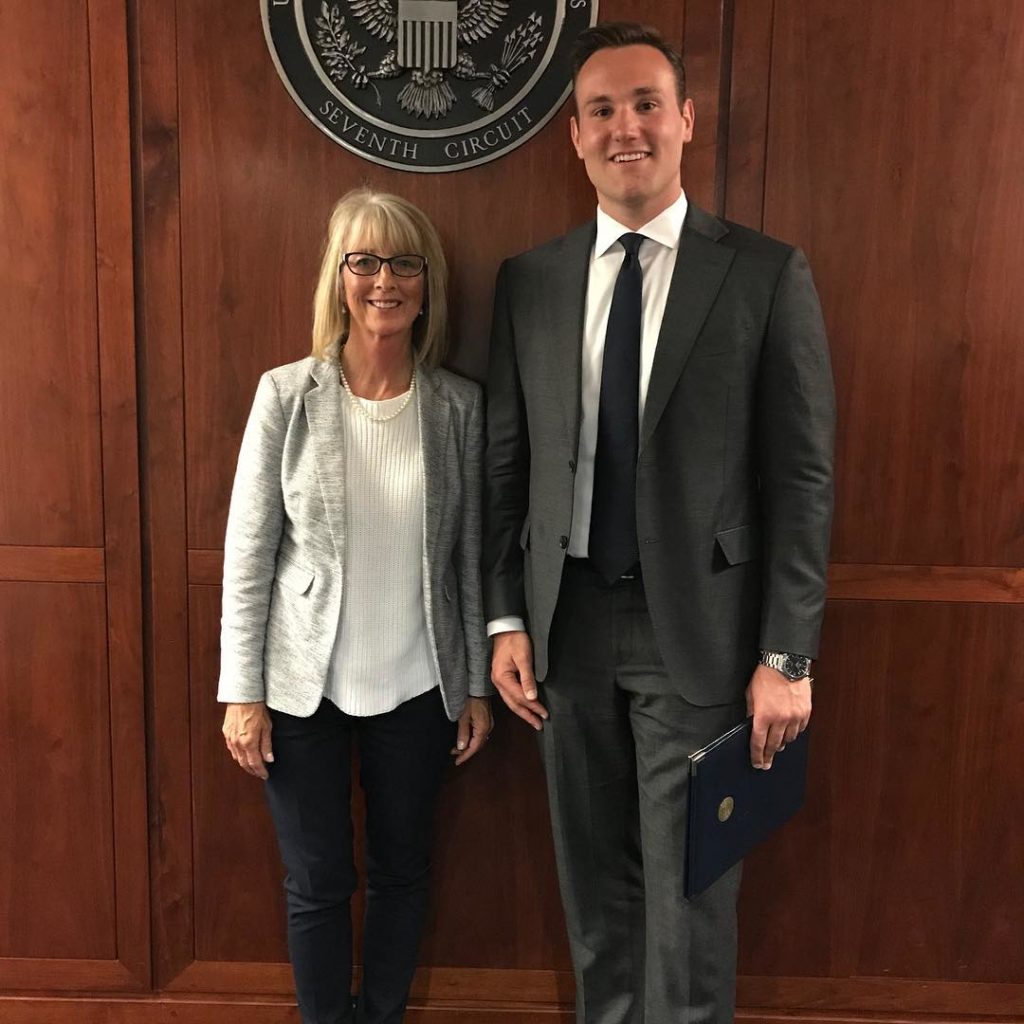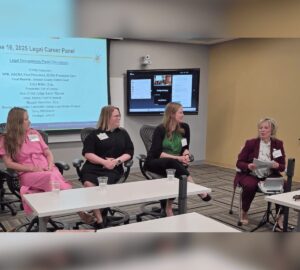
NCRA member Tammy L. Vandervort, RPR, is a freelance court reporter from Osceola, Ind., who has been at the machine for 32 years. After she and her business partner sold their freelance firm, she took a position as Client Relations Manager with Stewart Richardson Deposition Services in Indianapolis, Ind., where she provides CART, covers Federal Grand Juries, and recently has worked on a pro bono case. She also provides students at the University of Notre Dame Law School with the experience of working with a live court reporter during their deposition training as they prepare to become professional attorneys. But one of her best experiences of her career was attending three years of law school with a student who is deaf to whom she provided CART. The JCR Weekly recently caught up with Vandervort and her student to learn more about her work in the deposition classroom and her student’s experience with Vandervort’s services.
JCR / Tell me how you became involved in providing services for University of Notre Dame Law School’s deposition classes.
TV | Stewart Richardson Deposition Services has clients who are adjunct professors teaching the deposition class, and I approached one of them with the idea of providing a real-life experience utilizing court reporters who will provide a transcript so they can see what they look like on paper.
JCR / How many other reporters are involved in this effort?
TV | We have a team of two to four reporters each semester.
JCR / Why do you find this work important?
TV | It gives the law students an opportunity to learn the importance of a clean record. We not only provide a transcript, but offer our advice on what went well and where they need to improve.
JCR / Do you have any advice for others in the profession interested in becoming involved in this type of work?
TV | Put yourself out there. It never hurts to ask. Sometimes you must give a little to make an impact.
JCR / What have you learned by doing this type of work?
TV| That every law school should be doing deposition classes for students going into litigation. We have eventually worked with some of the law students after they passed the bar, and those attorneys are far more advanced in taking depositions and being conscientious of the record than some of their senior colleagues who have not had the same opportunity.
JCR / What do you hope law students will learn from seeing a court reporter in action?
TV | How important it is to their case to have a clean record and how difficult our job is, especially when they do not take into consideration their part in making a clean record.
JCR / What kinds of questions do you get from the law students?
TV | “Do you really write everything we say?”
“How do you do that?”
“What’s the funniest deposition story?”
JCR / How did you happen to meet the law student you provided CART for?
TV| I have had a long-term working relationship with Notre Dame providing CART.
JCR / Did you attend every class with him?
TV | Yes, I attended the majority of his classes. Two other reporters helped fill in the gaps when needed.
JCR / Did you become good friends?
TV | We did. He’s the same age as my oldest son, so he easily took on the role as another one of my kids. My husband and I were invited to his graduation where we met his family, and we still stay in touch.
JCR / What made those three years attending classes with him some of the best years of your career?
TV | Throughout my career, I have done a variety of jobs. Hands down it was the best three years of my career! First, I always wanted to attend law school and become a lawyer. Attending law school for three years and getting paid to do what I love to do was the next best thing. But, mostly, I felt honored that I was able to give back a gift I was given for someone who needed it to pursue their dreams.
There were several highlights, including providing CART for him to argue in front of the Seventh Circuit Appeals Court in Chicago; meeting and providing CART for U.S. Supreme Court Chief Justice John G. Roberts, Jr., in one of his classes; becoming friends with the then professor, now newly appointed Seventh Circuit Court of Appeals judge; and providing CART for when U.S. Supreme Court Justice Ruth Bader Ginsburg spoke to the law students in 2016.
JCR / What did the other students think of the service you were providing him?
TV | Because he was such an outstanding student, most were in awe of his ability to communicate clearly and pull off mock oral arguments like nobody’s business. The part I loved is that most of the students did not know why I was there. When they found out, they were surprised that he relied on CART services throughout his time in law school.




